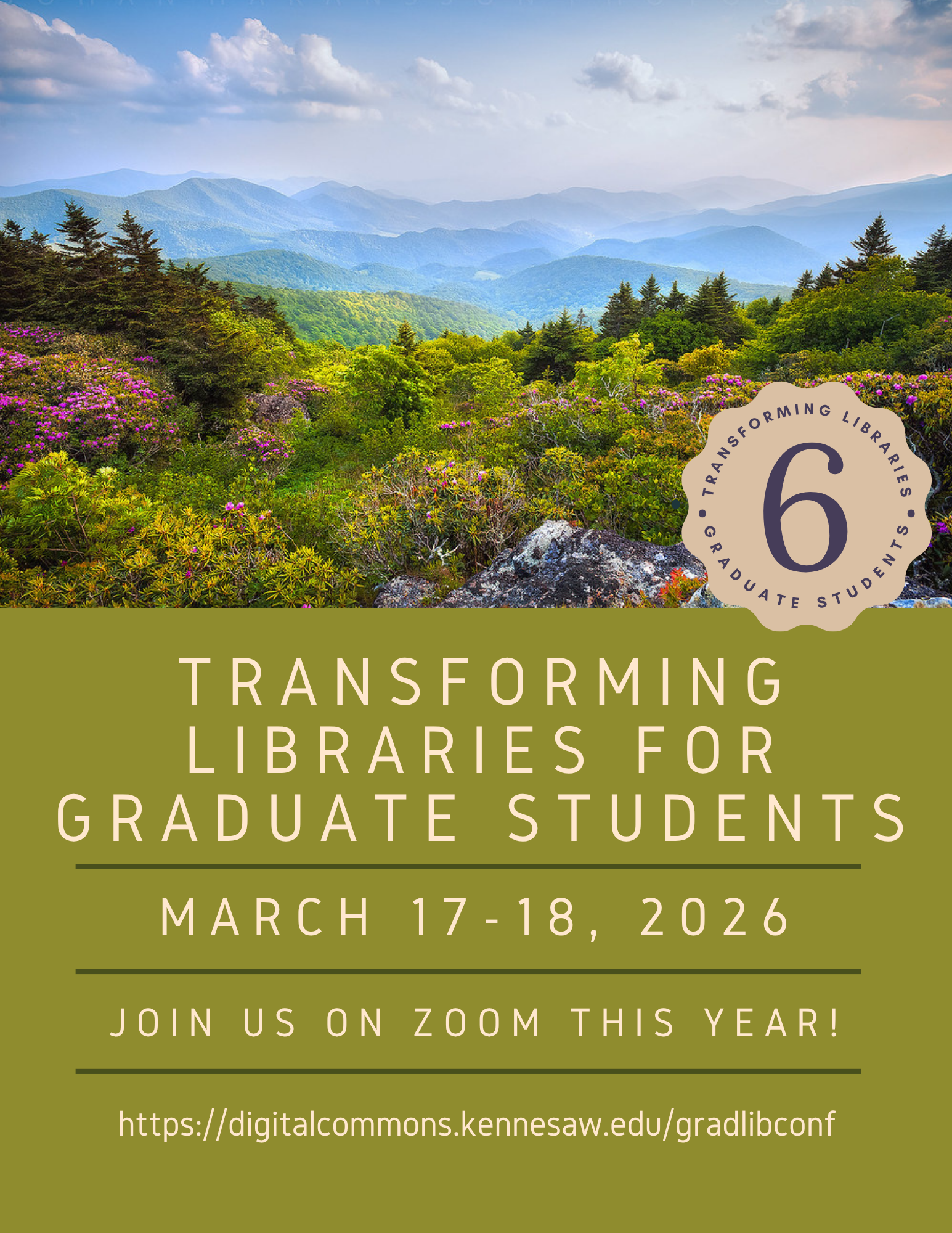Start Date
3-23-2018 9:15 AM
End Date
3-23-2018 10:15 AM
Description of Proposal
Professional masters programs in the social sciences and policy fields prepare participants for middle and senior positions in the private sector, government, non-profits, and international organizations. In addition to ensuring further disciplinary knowledge, programs often include components on managerial, organizational, communication, policy analysis, and similar skills. Institutions are adding programs in interdisciplinary and emerging areas to their existing professional programs in business, counseling psychology, social work, and public administration.
Librarians face distinctive challenges in supporting such programs. Faculty teaching in these programs may be adjuncts unfamiliar with their institution’s library offerings and services. Some students have just completed undergraduate programs, while others have been in the workforce for years. Some are seeking further depth in subjects they already know, while others are looking to change careers and have little knowledge of academic approaches in their new fields. Students in these programs therefore have uneven states of disciplinary knowledge and academic writing conventions. [JDS1] Mid-career students are often balancing work and family with the degree program, with little time or attention for anything beyond the strict requirements of their classes, making it harder for librarians to reach them.
Post-graduation, most students will work in knowledge-heavy environments where they are expected to evaluate and produce knowledge products such as technical papers, white papers, policy and program analyses, proposals, plans, and evaluation, yet they will not typically have access to the scholarly literature as provided through academic libraries.
How have librarians supporting such programs adapted to support such students? What mix of academic and open resources do libraries and librarians incorporate in their teaching, research guides and collection development activities?
Participants are encouraged to be prepared to share outlines of research guides, slides, exercises and other material they use in working with students in these programs. In particular, we will discuss:
1. How have you assessed the needs of students in these programs?
2. Have you identified needs that are significantly different from students in academic masters programs?
3. Is there a role for academic libraries and librarians in helping students understand how to access and use the kinds of resources they will encounter post-graduation? If so, what have you done/what are you planning to do in terms of services and collection development?
Included in
Communication Commons, Higher Education Commons, International and Area Studies Commons, Library and Information Science Commons, Other Social and Behavioral Sciences Commons, Political Science Commons, Public Affairs, Public Policy and Public Administration Commons, Urban Studies and Planning Commons
Roundtable: Supporting professional masters' programs in social science and policy fields
RM 400
Professional masters programs in the social sciences and policy fields prepare participants for middle and senior positions in the private sector, government, non-profits, and international organizations. In addition to ensuring further disciplinary knowledge, programs often include components on managerial, organizational, communication, policy analysis, and similar skills. Institutions are adding programs in interdisciplinary and emerging areas to their existing professional programs in business, counseling psychology, social work, and public administration.
Librarians face distinctive challenges in supporting such programs. Faculty teaching in these programs may be adjuncts unfamiliar with their institution’s library offerings and services. Some students have just completed undergraduate programs, while others have been in the workforce for years. Some are seeking further depth in subjects they already know, while others are looking to change careers and have little knowledge of academic approaches in their new fields. Students in these programs therefore have uneven states of disciplinary knowledge and academic writing conventions. [JDS1] Mid-career students are often balancing work and family with the degree program, with little time or attention for anything beyond the strict requirements of their classes, making it harder for librarians to reach them.
Post-graduation, most students will work in knowledge-heavy environments where they are expected to evaluate and produce knowledge products such as technical papers, white papers, policy and program analyses, proposals, plans, and evaluation, yet they will not typically have access to the scholarly literature as provided through academic libraries.
How have librarians supporting such programs adapted to support such students? What mix of academic and open resources do libraries and librarians incorporate in their teaching, research guides and collection development activities?
Participants are encouraged to be prepared to share outlines of research guides, slides, exercises and other material they use in working with students in these programs. In particular, we will discuss:
1. How have you assessed the needs of students in these programs?
2. Have you identified needs that are significantly different from students in academic masters programs?
3. Is there a role for academic libraries and librarians in helping students understand how to access and use the kinds of resources they will encounter post-graduation? If so, what have you done/what are you planning to do in terms of services and collection development?



What takeaways will attendees learn from your session?
Professional masters programs in the social sciences and policy fields prepare participants for middle and senior positions in the private sector, government, non-profits, and international organizations. Librarians face distinctive challenges in supporting such programs. Faculty teaching in these programs may be adjuncts unfamiliar with their institution’s library offerings and services. Some students have just completed undergraduate programs, while others have been in the workforce for years. Post-graduation, most students will work in knowledge-heavy environments where they are expected to evaluate and produce knowledge products such as technical papers, white papers, policy and program analyses, proposals, plans, and evaluation, yet they will not typically have access to the scholarly literature as provided through academic libraries.
How have librarians supporting such programs adapted to support such students? What mix of academic and open resources do libraries and librarians incorporate in their teaching, research guides and collection development activities? Participants are encouraged to be prepared to share outlines of research guides, slides, exercises and other material they use in working with students in these programs.